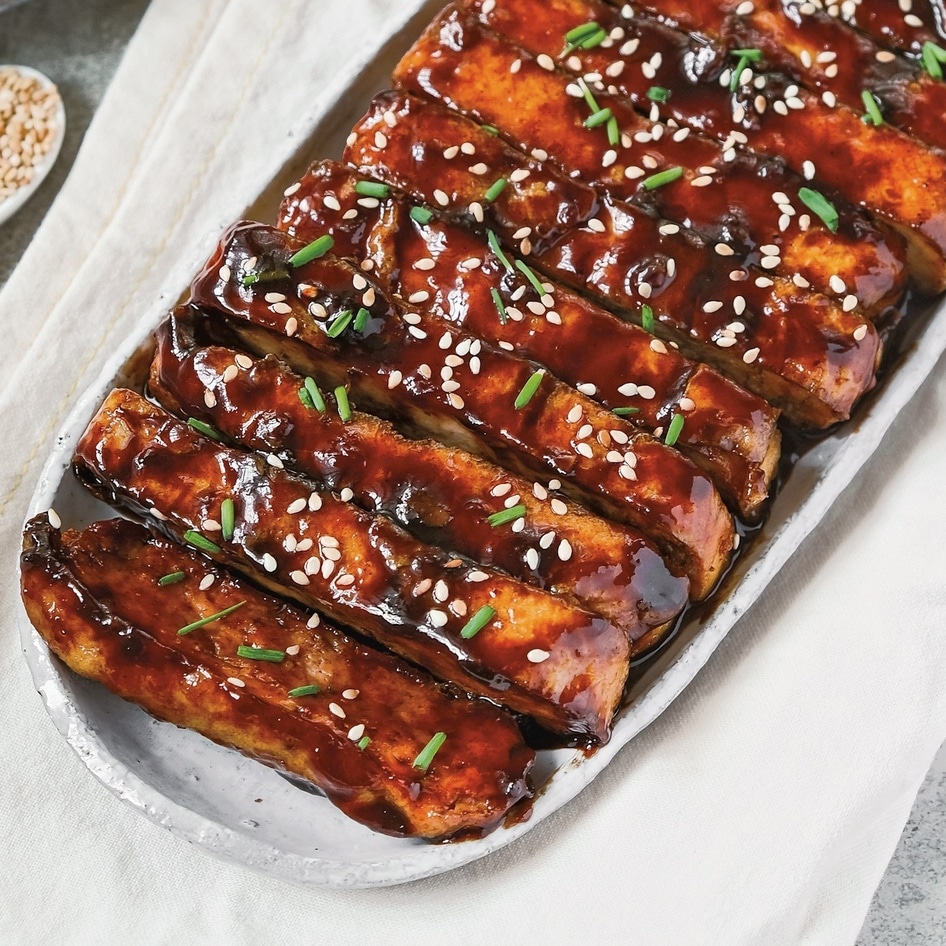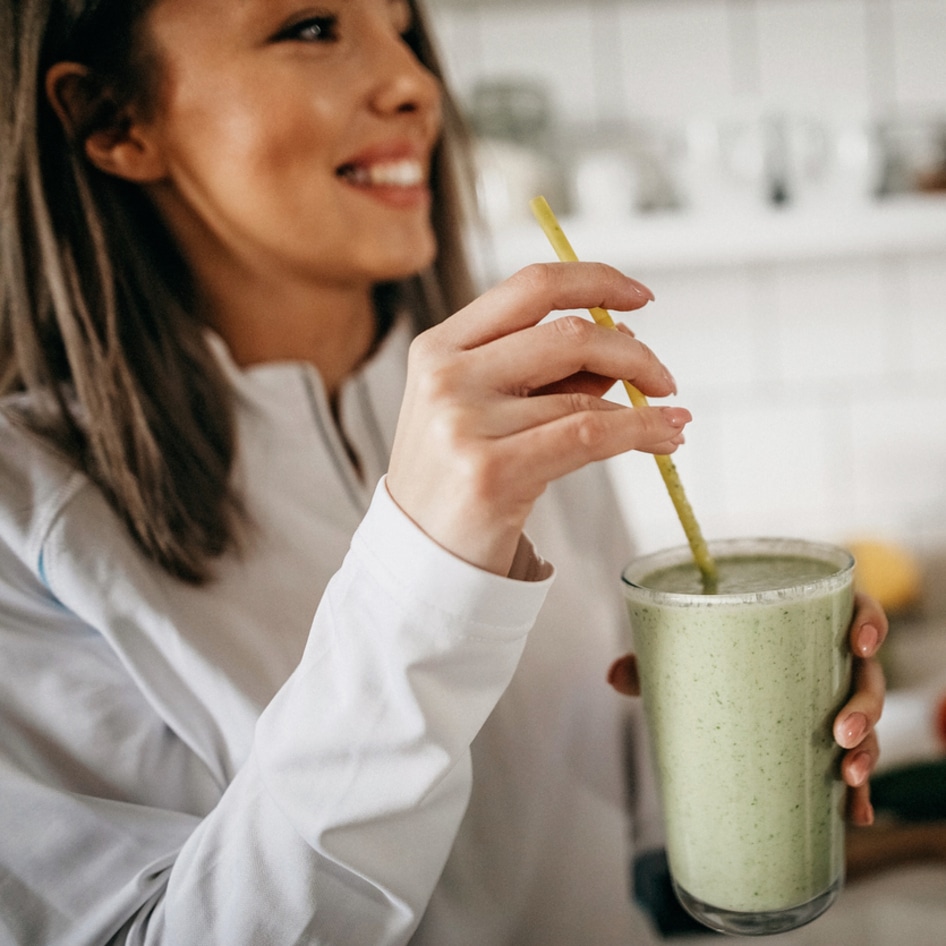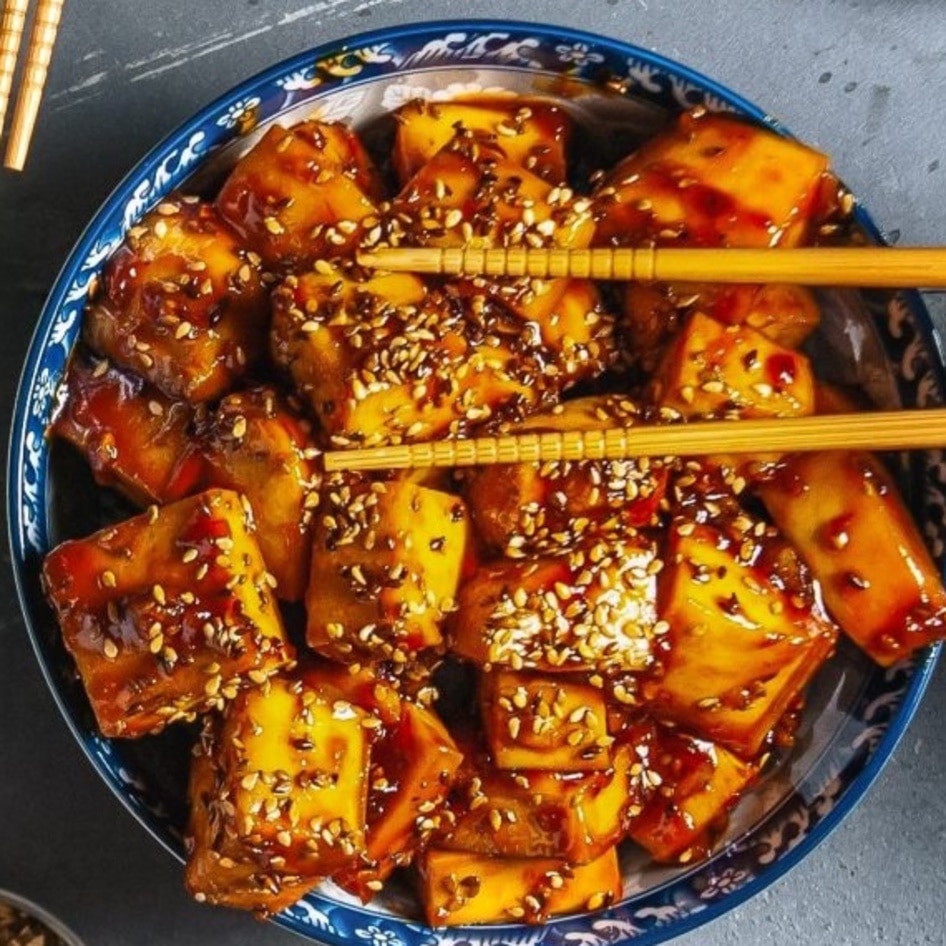The most common base in protein powders is whey, a milk byproduct. But it’s not the only path to gains. There is a veritable world of plant-based protein powders, crafted to meet the needs of the most hardcore athletes.
These vegan protein powders are derived from a variety of plant-based sources, each with its own nutrient profile and benefits. Understanding where these proteins come from and their key nutrients can help you make the best choice for your fitness goals, whether that’s building muscle, enhancing endurance, or supporting general health.
 Krzysztof Biernat/Pexels
Krzysztof Biernat/Pexels
What is whey?
Whey protein is a byproduct of cheese production, derived from the liquid that separates during the curdling process of milk. It is considered a complete protein, containing all nine essential amino acids necessary for muscle growth and recovery, making it a popular choice among athletes. One of whey’s primary advantages is its high concentration of branched-chain amino acids (BCAAs), particularly leucine, which plays a crucial role in muscle protein synthesis. Whey is also highly bioavailable, meaning it is quickly absorbed by the body, making it a popular post-workout supplement.
However, whey comes with some drawbacks. For one, many people experience digestive issues such as bloating or discomfort due to lactose intolerance, which can be exacerbated by whey protein consumption, particularly in less refined forms such as whey concentrate.
In terms of protein content, whey is highly efficient, often containing between 70 and 80 grams of protein per 100 grams. While it may provide faster muscle recovery due to its amino acid profile, plant-based proteins offer other nutritional benefits, such as fiber and antioxidants, that are lacking in whey.
For those focused on muscle gain, whey has been shown to increase muscle protein synthesis more rapidly, but plant-based proteins—when combined strategically—can also meet the necessary amino acid requirements and provide additional health benefits.
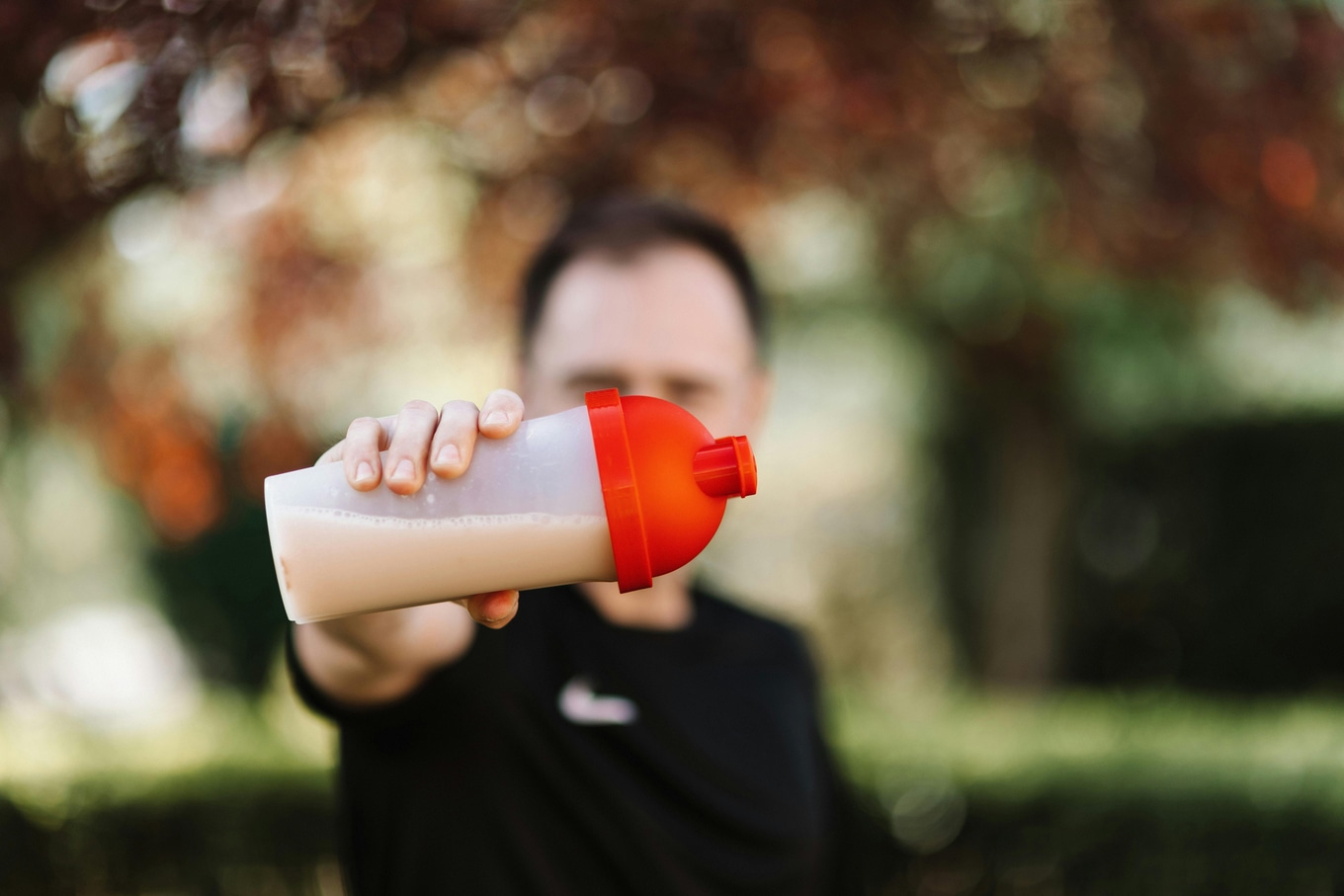 Karolina Grabowska/Pexels
Karolina Grabowska/Pexels
Plant protein sources
We tapped a few experts for insights around the vast world of vegan protein powders, first broken down by their individual protein sources.
Legumes
Beans and legumes are rich sources of protein and are the most common bases for vegan protein powders.
Soy Protein
Soy protein is derived from soybeans, a legume native to East Asia, and is one of the most commonly used plant-based protein sources due to its versatility. Soy protein is a complete protein, containing high levels of isoflavones, which are beneficial for heart health and cholesterol management. It also provides significant amounts of iron, calcium, and potassium.
“Soy protein is an excellent option for anyone focused on muscle building and enhanced recovery,” Sergii Putsov, Certified Personal Trainer (CPT), with a Ph.D. in Sports Science from the International Olympic Academy, tells VegNews. “This is because it contains all the nine essential amino acids, making it a complete protein with a profile similar to animal proteins.”
“Soy is also rich in BCAAs, crucial for muscle protein synthesis,” Putsov says.
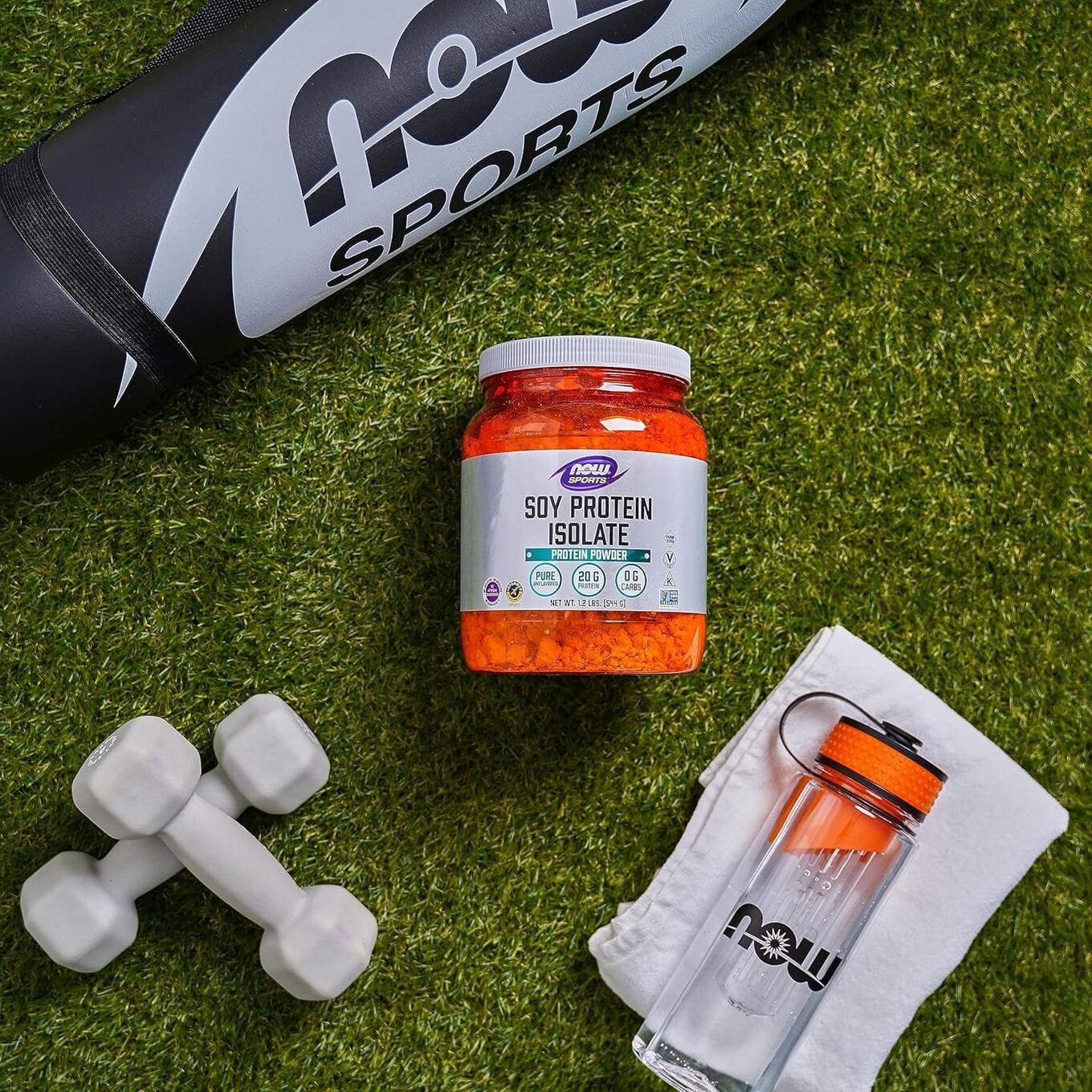 Now Foods
Now Foods
For this reason, sports nutrition company NOW Foods developed a soy protein isolate as a plant-based alternative to whey protein. “It is a good vegetable source of high quality complete protein that has an excellent amino acid profile,” the company tells VegNews. “According to the FDA, diets low in saturated fat and cholesterol that include 25 grams of soy protein a day may reduce the risk of heart disease.”
Soy protein, however, comes with some downsides. It is a common allergen, and some individuals may experience digestive discomfort or sensitivities to it.
Pea Protein
One of the most common bases in vegan protein powder, pea protein is extracted from yellow split peas, a legume high in protein and fiber. Peas are grown globally, with Canada being a major producer. Pea protein is also rich in iron, containing up to 35 percent of the recommended daily intake per serving.
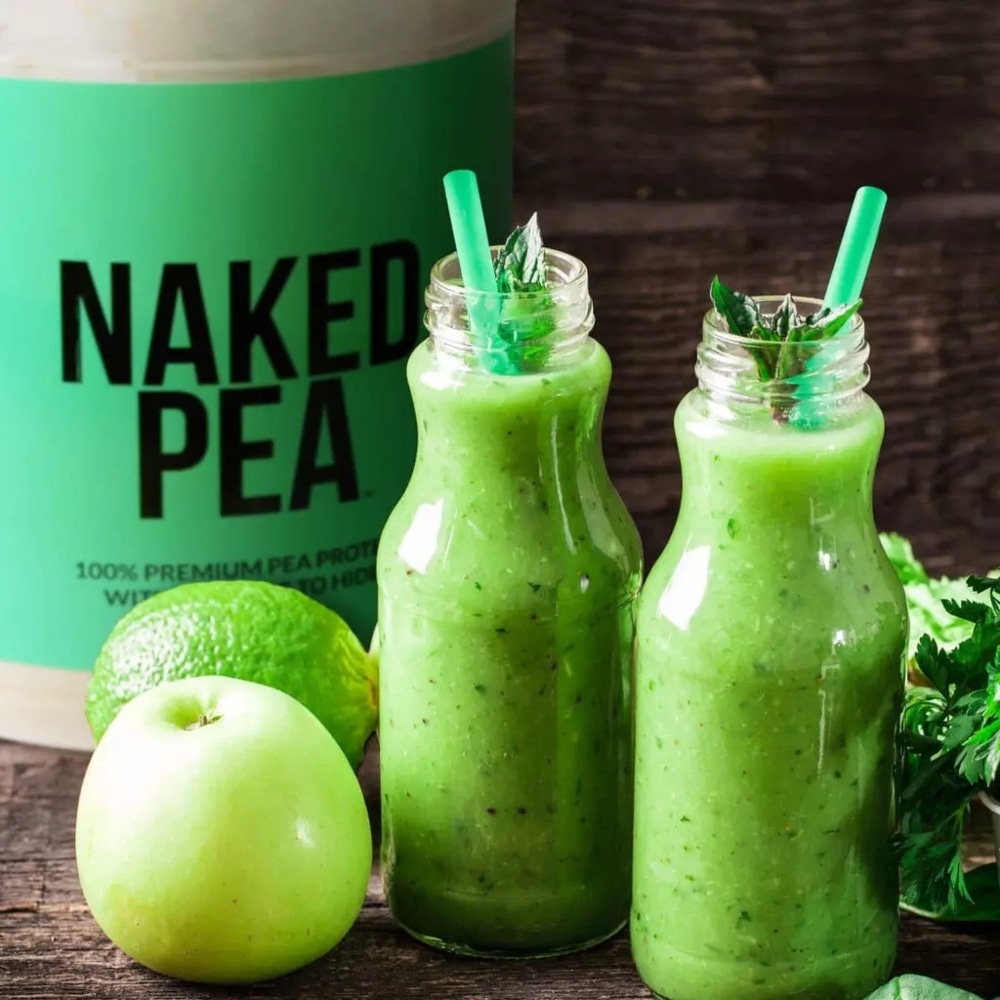
“Pea protein is a good alternative for those who have soy sensitivities,” Putsov says. “However, it is not a complete protein on its own; it is rich in lysine, which is essential for muscle repair and growth.”
Chickpea protein
Chickpea protein, made from ground chickpeas, is rich in fiber, vitamins, and minerals, including iron, magnesium, and phosphorus. While chickpea protein may not be a complete protein on its own, its high digestibility makes it suitable for many dietary needs, including those with sensitivities to common allergens such as dairy, soy, and gluten.
Neutral in flavor, chickpea protein is particularly beneficial for muscle recovery and weight management. It offers a decent amount of protein, with some powders containing up to 20 grams per serving, along with a good amount of fiber, which promotes satiety and helps regulate blood sugar levels.
Lupin Protein
Chocho—a species of lupin grown in the Andes— is another legume protein source. It delivers 54 grams of protein per 100 gram serving, which is higher than soy at 36 grams, hemp at 34 grams, pea (green) at 26 grams, and chickpea at 16 grams.
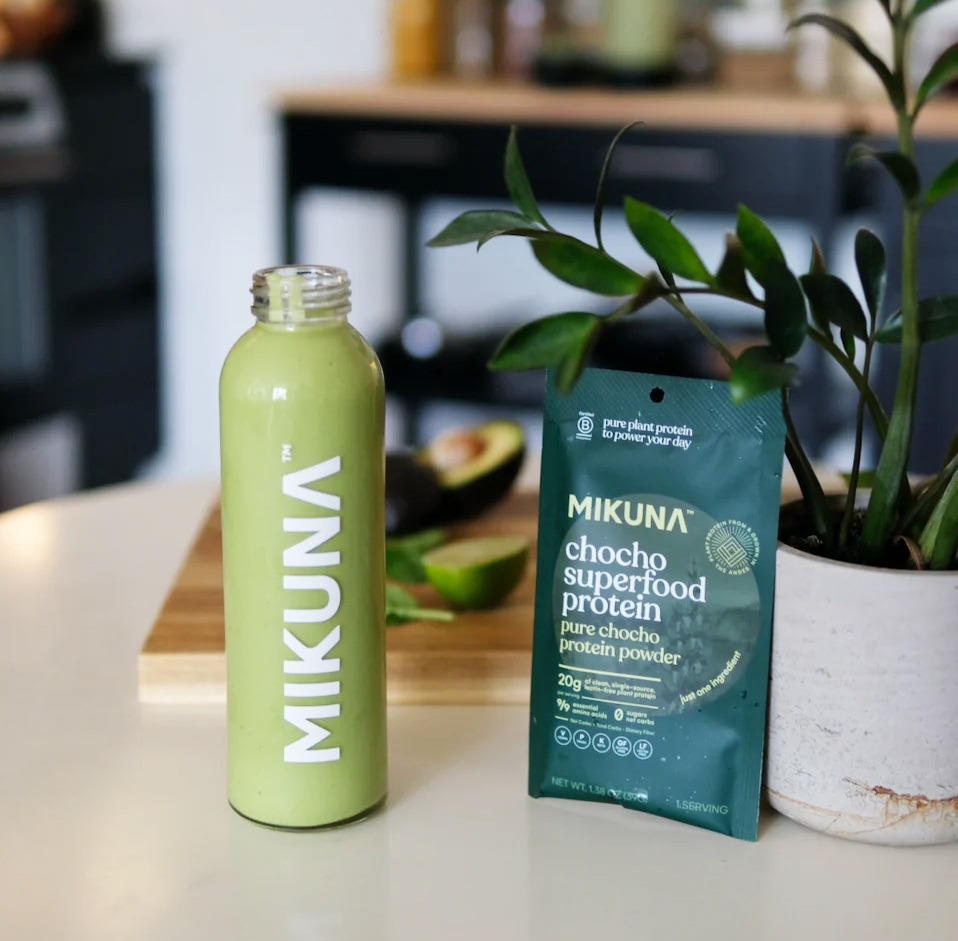 Mikuna
Mikuna
It also solves many allergy issues, which is the reason why Ricky Echanique—a fifth-generation Ecuadorian farmer and former professional tennis player—founded his sports nutrition brand Mikuna around this hero ingredient.
“I opted for chocho as my plant protein source due to my intolerance to pea, hemp, whey and soy,” Echanique tells VegNews. “I found that these alternatives did not agree with my body when I was seeking to improve my overall well-being.”
“Chocho stands out to me because of its minimal processing, retaining its whole food integrity while being rich in essential nutrients and trace minerals without undergoing isolation processes,” Echanique says.
Brands to try for legume protein include:
- 365 by Whole Foods Market
- Alaya Naturals
- Anthony’s Goods Organic
- Birdman
- Evolve
- Good Wolf
- Green Boy
- Growing Naturals
- KOS
- Mikuna Foods
- Naked
- NorCal Organic Premium
- NOW Foods
- NuGo
- Nutrasuma
- NutriBiotic
- Prote&co
- Ritual
- Simply Fuel
- SOLO Organic
- Sprout Living
- Truvani
- Zammex
- Zen Principle
Grains
Grains are not always associated with gains, but many provide a protein boost along with other nutritional benefits, particularly when they are sprouted.
Brown rice protein
Brown rice protein is made from whole-grain brown rice through a process of enzymatic separation. The outer bran and germ are retained, providing more nutrients than white rice. It contains a significant amount of B vitamins, magnesium, and fiber.
Since brown rice protein is low in lysine, an essential amino acid necessary for muscle repair, combining it with another protein is key.
“This is an excellent option for anyone focused on endurance,” Putsov says. “Combined with pea protein, it becomes a complete protein source supporting muscle maintenance and energy levels needed during long workout sessions.”
Sports nutrition brand Sunwarrior follows this formula for its Sunwarrior Organic Active Protein, combining brown rice, pea, and pumpkin to achieve a higher Protein Digestibility-Corrected Amino Acid Score (PDCAAS). Plus, the plant protein has other benefits, too.
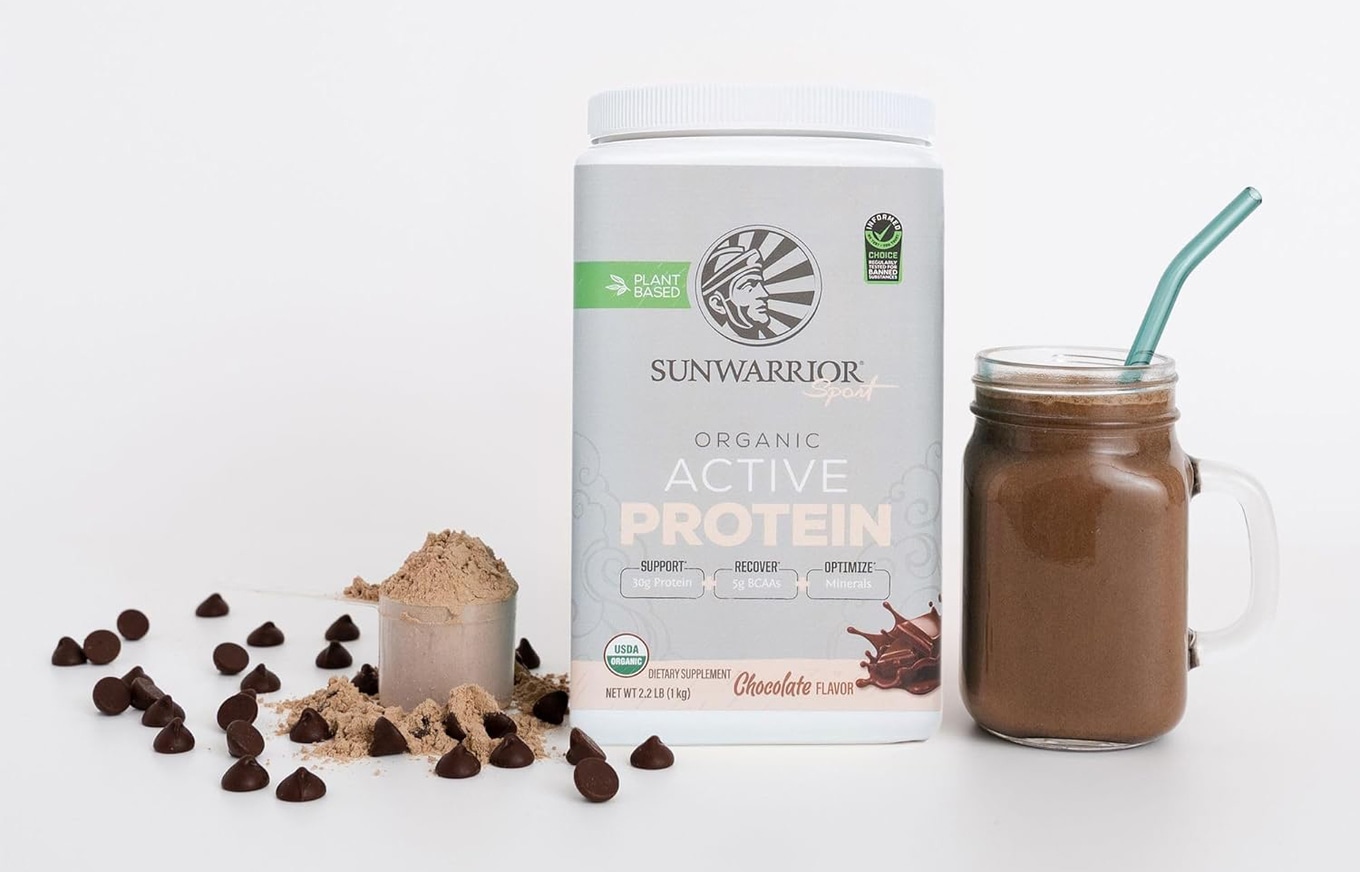 Sunwarrior
Sunwarrior
“From a sustainability perspective, these plant-based proteins are environmentally friendly, requiring fewer resources and producing less greenhouse gas emissions compared to animal-based proteins,” Ryan Blad, Chief Marketing Officer at Sunwarrior, tells VegNews.
Brown rice protein is also low in calories, making it a great option for individuals focused on weight management.
BECOME A VEGNEWS VIP: Get exclusive product deals, freebies, and perks galore!
Sprouted barley protein
Sprouting grains, such as barley and rice, means that they have been germinated, enhancing their nutrient content. Sprouting increases the availability of enzymes and breaks down complex sugars, making it easier to digest.
 Rise311
Rise311
Jason Walsh, co-founder of sports nutrition brand Rise311, chose sprouted barley as a hero ingredient—together with pea protein—for this “pre-digested” quality.
“[This] makes it gentle on your stomach, especially when combined with some of our other ingredients,” Walsh tells VegNews. “Arguably the amino acids are also more bioavailable and easier to absorb.”
This protein contains significant amounts of selenium, magnesium, and vitamins B1 and B3, and provides other benefits.
“Sprouted barley offers additional benefits for digestive health due to its high fiber content,” Putsov says. “It supports sustained energy release, which is beneficial for endurance athletes who need long-lasting energy.”
Brands to try for grain protein include:
Seeds and nuts
Seeds and nuts are easy to snack on to get more protein and, as it turns out, are commonly used as bases for plant-based protein powders.
Seed protein
Hemp protein is made from the seeds of the hemp plant (Cannabis sativa). It is produced by cold-pressing hemp seeds to remove oil and grinding the remaining solids into a powder. Hemp protein is a complete protein, containing all nine essential amino acids.
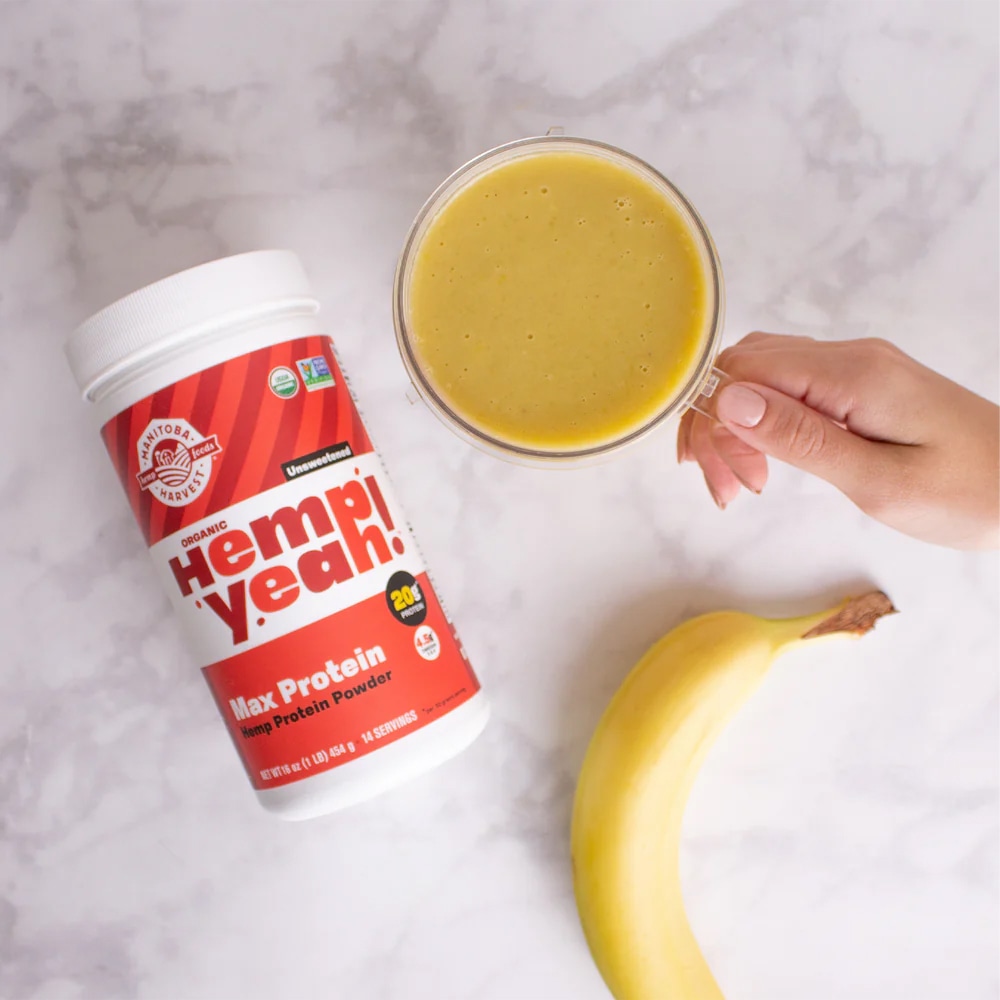 Manitoba Harvest
Manitoba Harvest
“Most people don’t know this, but hemp is an incredible plant-based protein source,” Jared Simon, President of nutrition companies Manitoba Harvest and Tilray Wellness, tells VegNews.
“In fact, one 30-gram serving of hemp hearts has more protein than 30 grams of chicken and fits perfectly into a variety of dietary preferences from vegan, keto, and gluten-free to dairy-free,” Simon says.
Manitoba Harvest produces its Max Protein Powder using hemp protein as a base due to its high levels of omega-3 and omega-6 fatty acids, which support heart health. “These fatty acids help slow down our digestion of protein, giving us more stable energy levels compared to other protein powders that might metabolize more quickly,” Simon says.
In addition to hemp, other seeds, such as flax, sunflower, and chia, are rich in omega-3 fatty acids, which deliver recovery benefits.
“Flaxseed and chia seed proteins are good for people looking to support their joint health and reduce inflammation,” Putsov says. “They are also a good source of fiber and protein critical to overall recovery and long-term health.”
Another ingredient found in some vegan protein powders is pumpkin seed protein, which supports immune health and muscle function. “It is high in zinc, magnesium, and iron, which are crucial for recovery, immune function, and vitality,” Putsov says.
Brands to try for seed protein include:
Nut Protein
Nuts are a common dietary plant protein source and some are used in vegan protein powders. Almond protein is produced by grinding almonds into a fine powder, often after cold-pressing to remove oils. It retains many of the health benefits of whole almonds, including healthy fats and micronutrients.
“It leaves you with a super-almond, high in protein per calorie, and maintains all of the nutritional benefits that make almonds a superfood, while removing the one bad nutrient, saturated fats,” Sean Hall, founder of almond protein powder brand Wellious, tells Vegews.
 Wellious
Wellious
Almond protein—which Wellious mixes with chickpea protein for a balanced amino acid profile—is also rich in vitamin E and magnesium.
Peanuts, while technically a legume, are also used as a protein powder due to their high protein content and rich nutrient profile. Peanut protein powder, or peanut flour, is packed with healthy fats, fiber, and vitamins such as vitamin E and magnesium.
Although it is not a complete protein, peanut protein powder can still contribute to muscle repair and energy levels when combined with other plant-based proteins to form a balanced amino acid profile.
Brands to try for nut protein include:
Blended protein powders
Eating a varied diet is key to optimal nutrition—which informs how vegan protein powders are created.
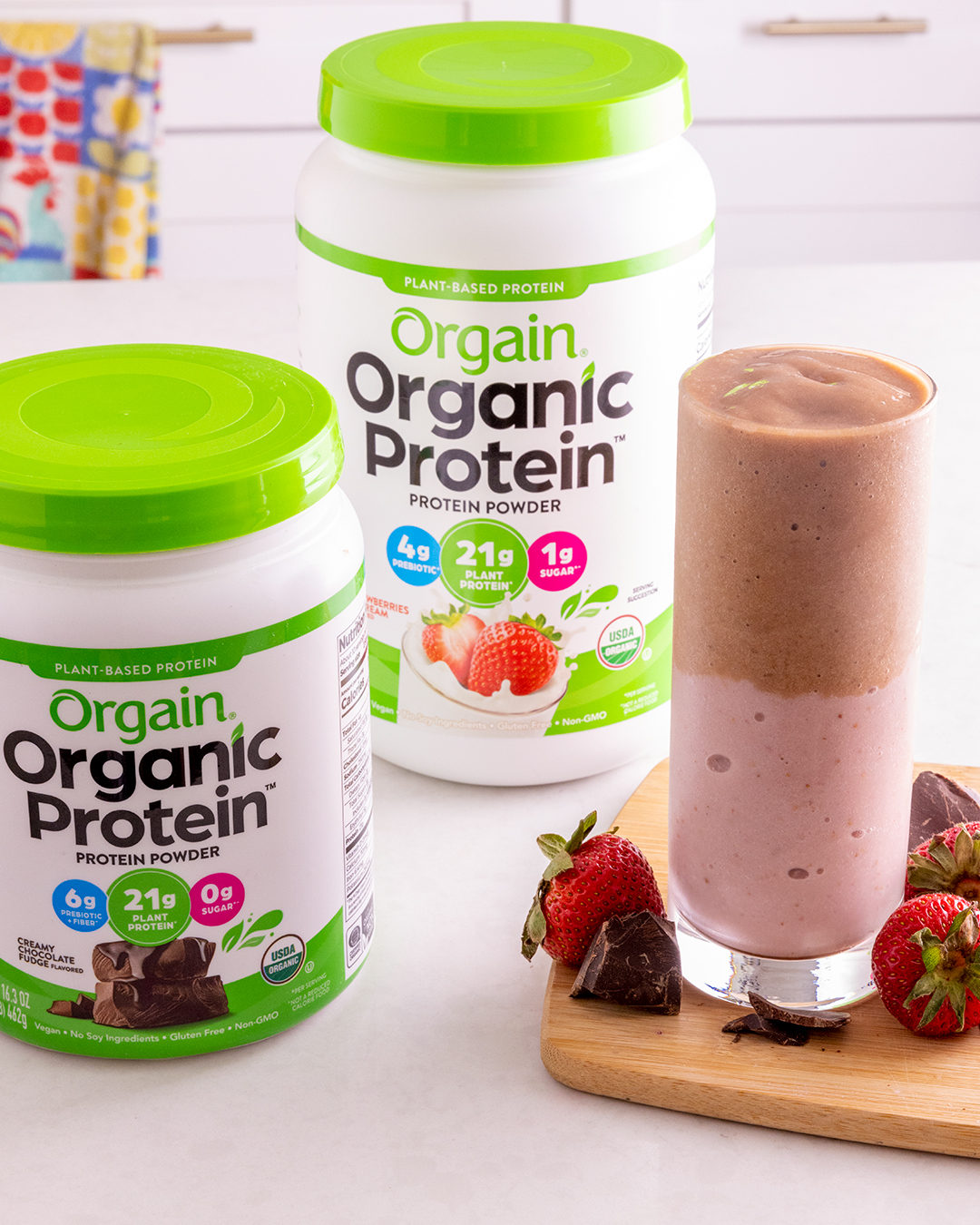 Orgain
Orgain
Most brands create their vegan protein powders from a blend of sources to ensure a complete nutritional profile.
Brands and products to try include:
- ALOHA
- Ambrosia
- Ascent
- BEAM Be Amazing
- Biochem
- Complement
- EarthChimp
- Further Food
- Garden of Life
- Ghost
- Gnarly Nutrition
- Huel
- Happy Viking
- Iron Vegan
- MRM Nutrition
- MyProtein
- Naked
- NOW Foods
- Optimum Nutrition
- Ora
- Orgain
- OWYN
- Possible
- PowerLife
- PlantFusion
- Purely Inspired
- Sprout Living
- Sunwarrior
- Tru
- UnNourish
- Vega
- Vital Proteins
- XEELA
For more plant-based stories like this, read:
JUMP TO ... Latest News | Recipes | Guides | Health | Shop

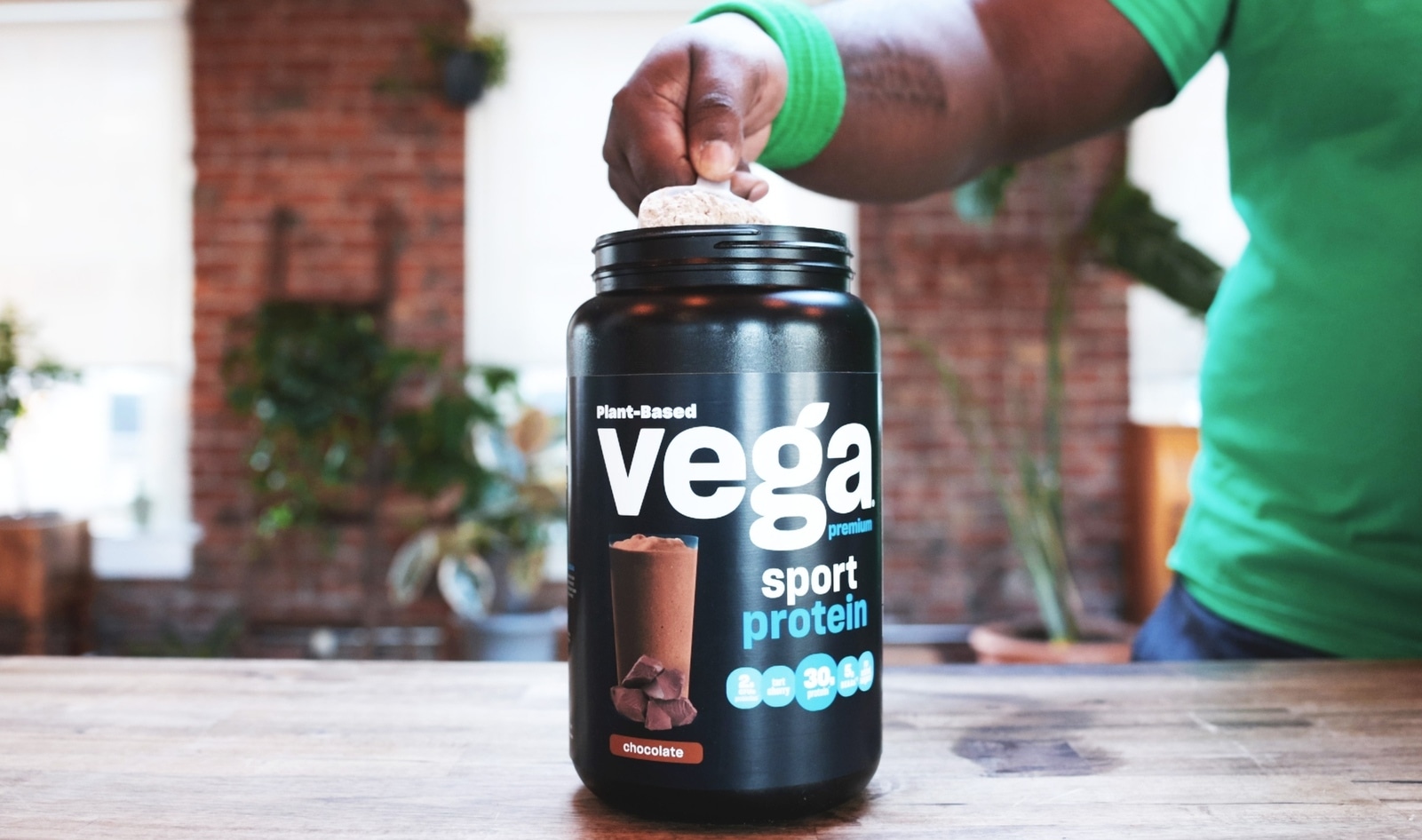


.jpg?sha=755e1ae15ee67d89)
